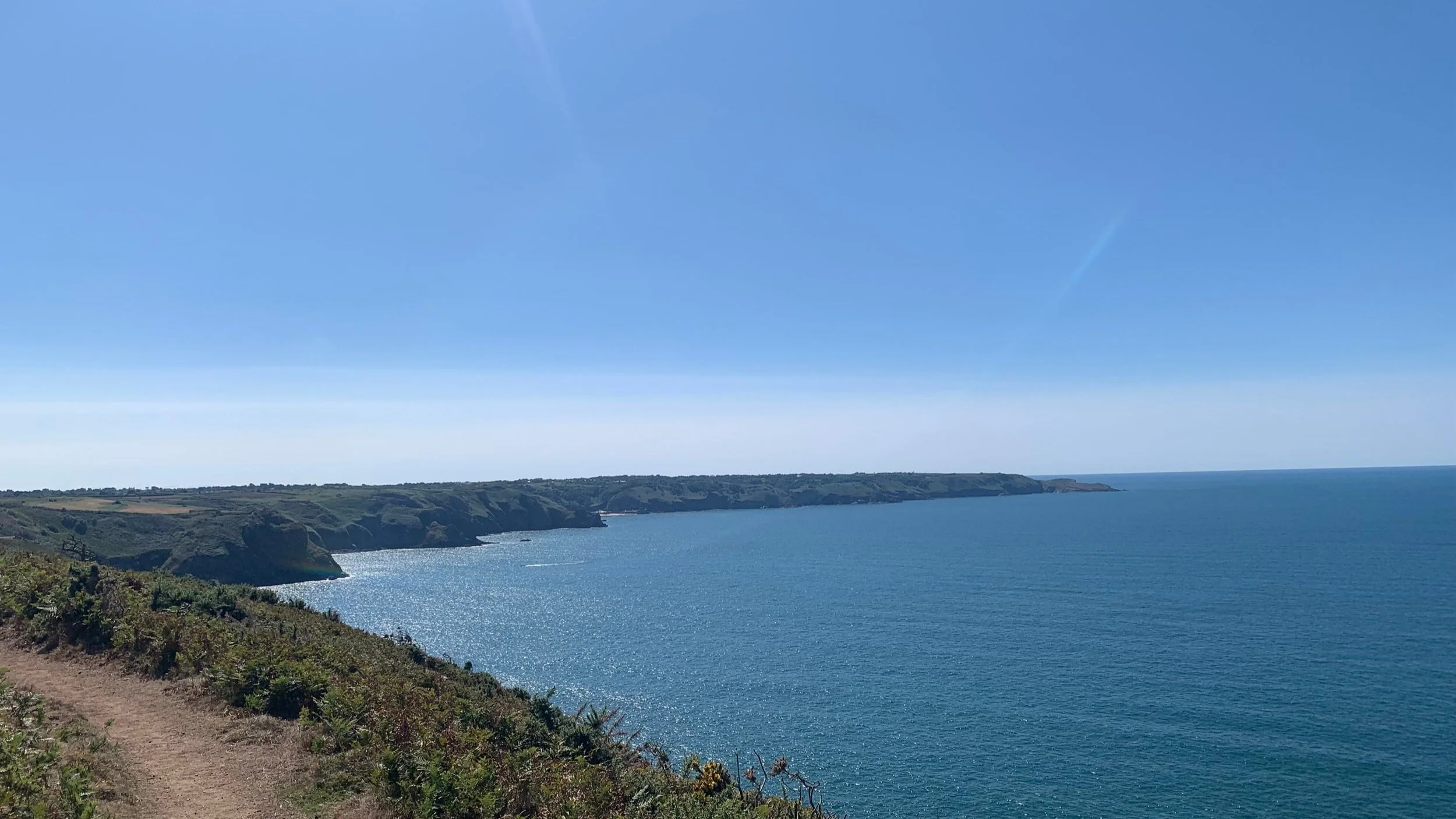Reflections on The Uncertainty of Living
They say the only certainties in life are death and taxes but I believe there’s another:
The certainty that life is filled with uncertainty.
I agree with those of you who claim that our daily habits and choices dictate our future. For example, if we spend more than we earn, we will naturally find ourselves in a financial deficit. This is cause and effect.
But what about when life blindsides us? When what happens to us is not a result of our poor decision-making? For example: a terminal diagnosis, an injustice, or, in my case, the sudden death of my spouse. One moment, everything seems as it should be. Then, out of the blue, it’s not. Once this happens to us, we are immediately aware of any illusions we carry of being in control of life.
In truth, simply being alive brims with uncertainty.
In my experience, one of the greatest pearls I’ve gleaned from heartbreak is this: demanding certainty fuels suffering.
Immediately after Russell’s death, I cried out, “Why? Why would this happen? And why would this happen to us?” The premature death of my husband, the father of our children, was not part of the script we had written for our lives. Letting go of control and predictability has been hard because they offered the illusion of safety. The reality, though, is that clinging to certainty creates fear and anxiety because I don’t want to be blindsided again, but know very well that I could be.
So, what can we do? How can we learn to live with this knowledge and not become paralysed by fearing all the terrible things that could possibly happen?
I believe part of the answer lies in deciding to make space for doubt. Too often, we’re afraid to question because we feel we should have all the answers, and deep down, we know we don’t. Trying to deny this only creates more inner turmoil.
There’s another layer to this when you’re a person of faith and someone who’s been taught that faith should negate all doubt. Yes, Scripture tells us again and again to “Fear not.” But it also shows us characters riddled with insecurities - people who learn to live with the paradox of doubt and belief.
This suggests that faith doesn't eliminate uncertainty but helps us hold it with hope.
I’ve wrestled with these concepts. And in my experience, doubt isn’t the enemy of faith but part of its foundation.
When Russell first died, my belief system was badly shaken. That’s the nature of being blindsided – the ground underneath became quicksand, and the branches of faith I thought I could grasp onto in an emergency were suddenly illusion. I could sense myself being sucked under a mire of grief, anger and bewilderment, which then spat me out into an unwanted wilderness.
In his book Swamplands of the Soul: New Life in Dismal Places, James Hollis calls times like these “swamplands” because even in the steamy, desolate wasteland, life still takes place. Possibilities still exist in the depths.
I remember being encouraged by this, even in my shattered state; that although my loss had changed the shape of absolutely everything, and although I was drowning in sorrow, there was still hope.
In the years that have followed, I’ve discovered the doubt and uncertainty that Russell’s death ignited within me became a sacred gateway to a deeper faith in a God unoffended by questioning and debate. I realised that the way I thought God ought to be has nothing to do with him and everything to do with the belief system I inherited. The version I learned in boarding school, from a community that found a ‘fire-and-brimstone’ style of Christianity convenient for enforcing pupil submission, allowed no room for questioning or doubt; that was considered completely sacrilegious.
But it feels good, and honest, to question it all: my doubts, fears and even my faith. To seek out the wisdom of others and that of Scripture. We were never promised lives unfettered by chaos and tragedy, so why have I allowed myself to think otherwise? That belief only deepened my rage when my world fell apart.
Maybe holding the knowledge of life’s unpredictability in one hand, and a deepening faith in the other, allows a new kind of resilience and humility to grow in me. I sincerely hope so because that, I believe, is what will help me play a more meaningful role in humanity.
With the disappearance of the road that I thought I was travelling, I found myself in uncharted territory, forced to re-route, not by choice but by necessity. Slowly, I came to trust that even in the unfamiliar, grace is available as a guidance that doesn’t always explain, but gently leads.
Grace sits in the tension between uncertainty and belief, doubt and faith.
Life is a full spectrum, ‘both/and’ experience. This is one of the rich lessons of grief. That I am able to live with a tragic, crushing loss that will sit forever in my heart and still experience deep joy and contentment. That I can question what I don’t understand with raw honesty and still be held by a faith that runs deeper than certainty.
This is the beautiful paradox of being human, created with divine intent. My brokenness becomes a sacred path toward greater understanding, not just of myself, but of how the ache for certainty is really a longing for wholeness. Grace isn’t a reward for living a life without doubt; she doesn’t wait for a faith-filled response to catastrophe. She enters the mess and fallout of grief, fear and pain, and whispers, ‘You are loved just as you are. Right here. Right now.’.
As Richard Rohr writes in Falling Upward:
“Grace seems to be at the foundation of everything.”
And perhaps, that’s the only certainty we ever truly need.


